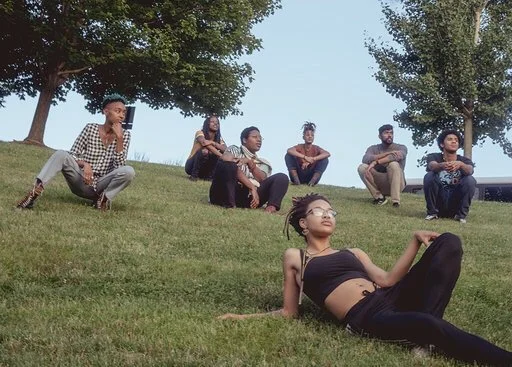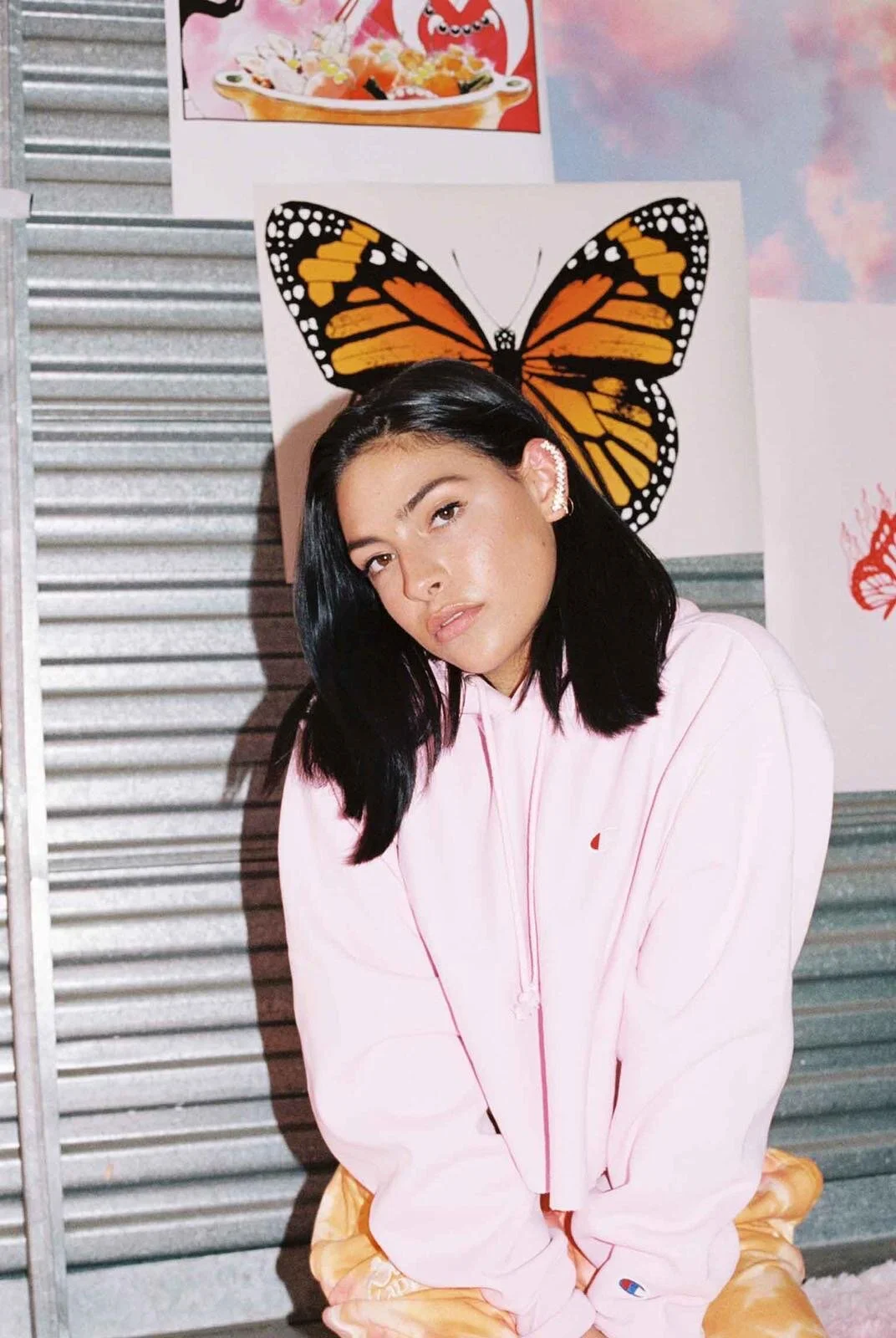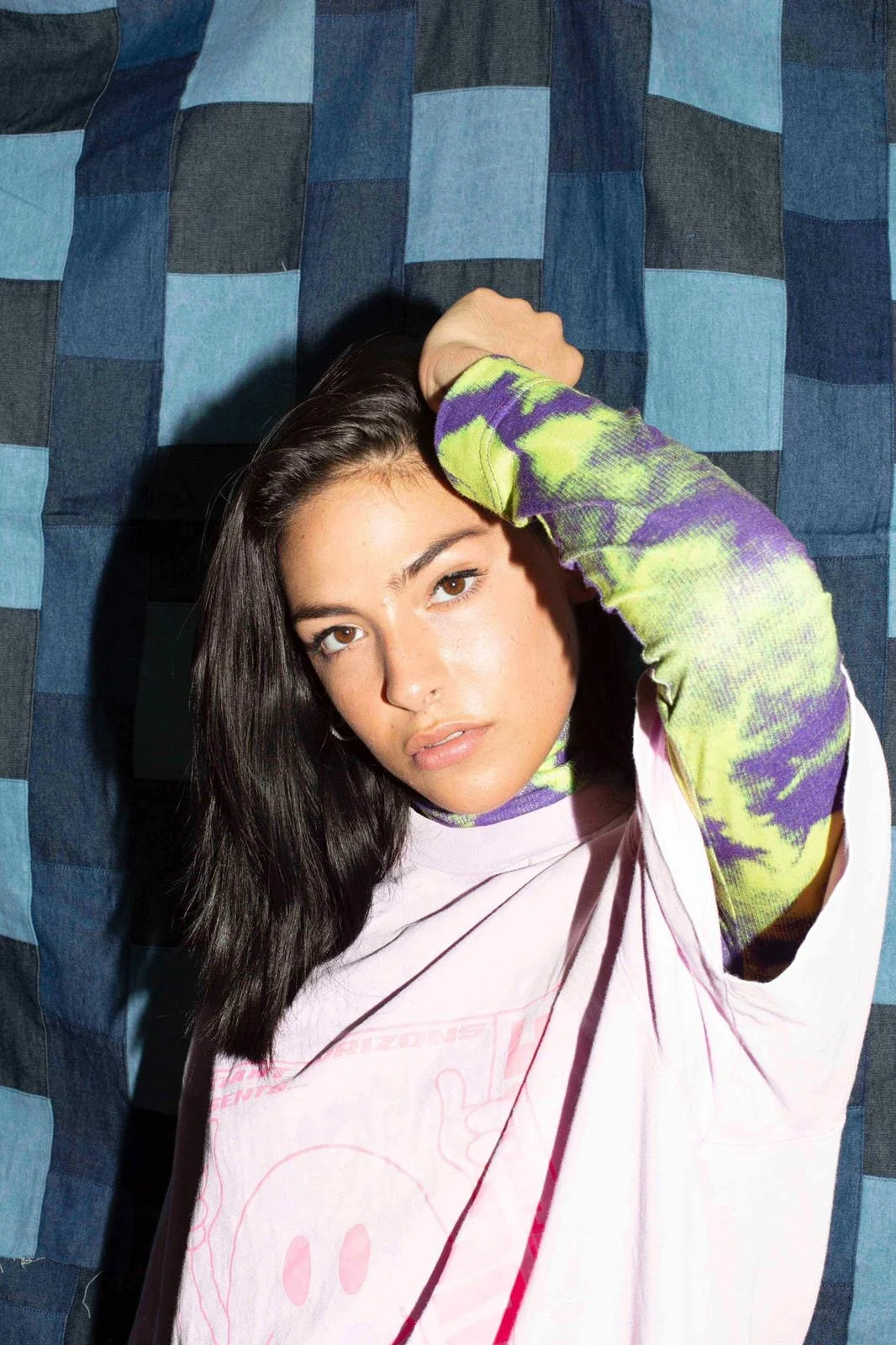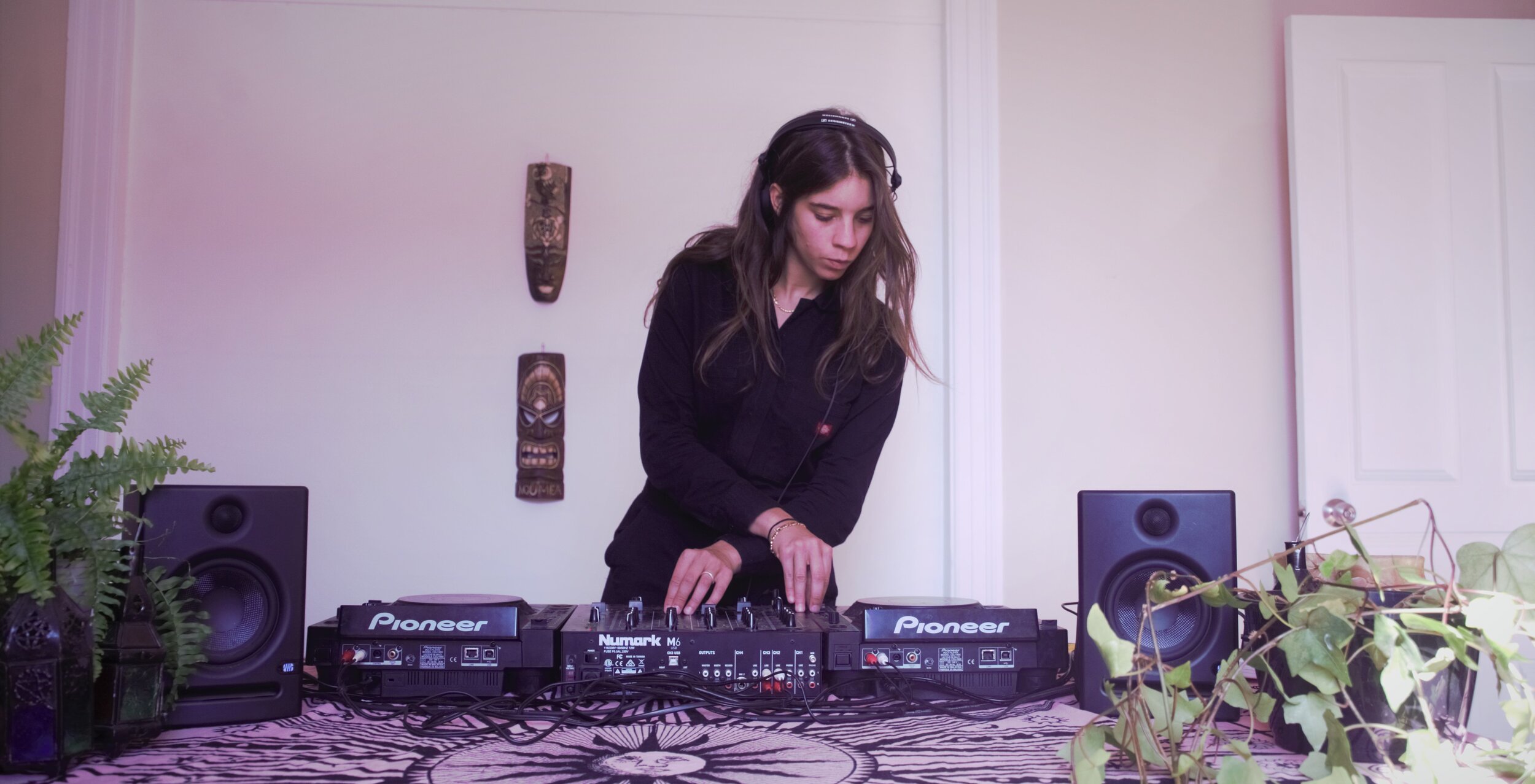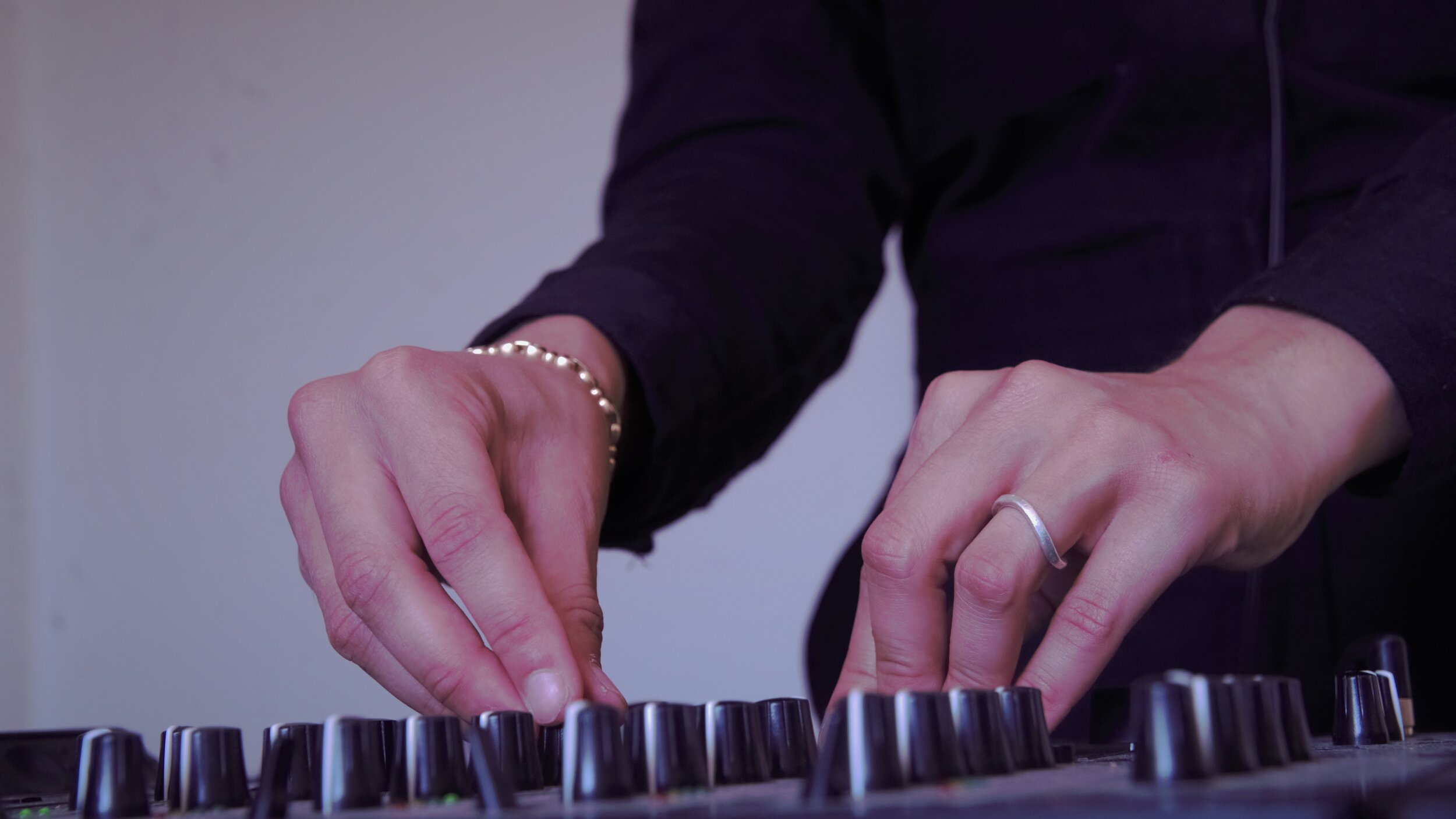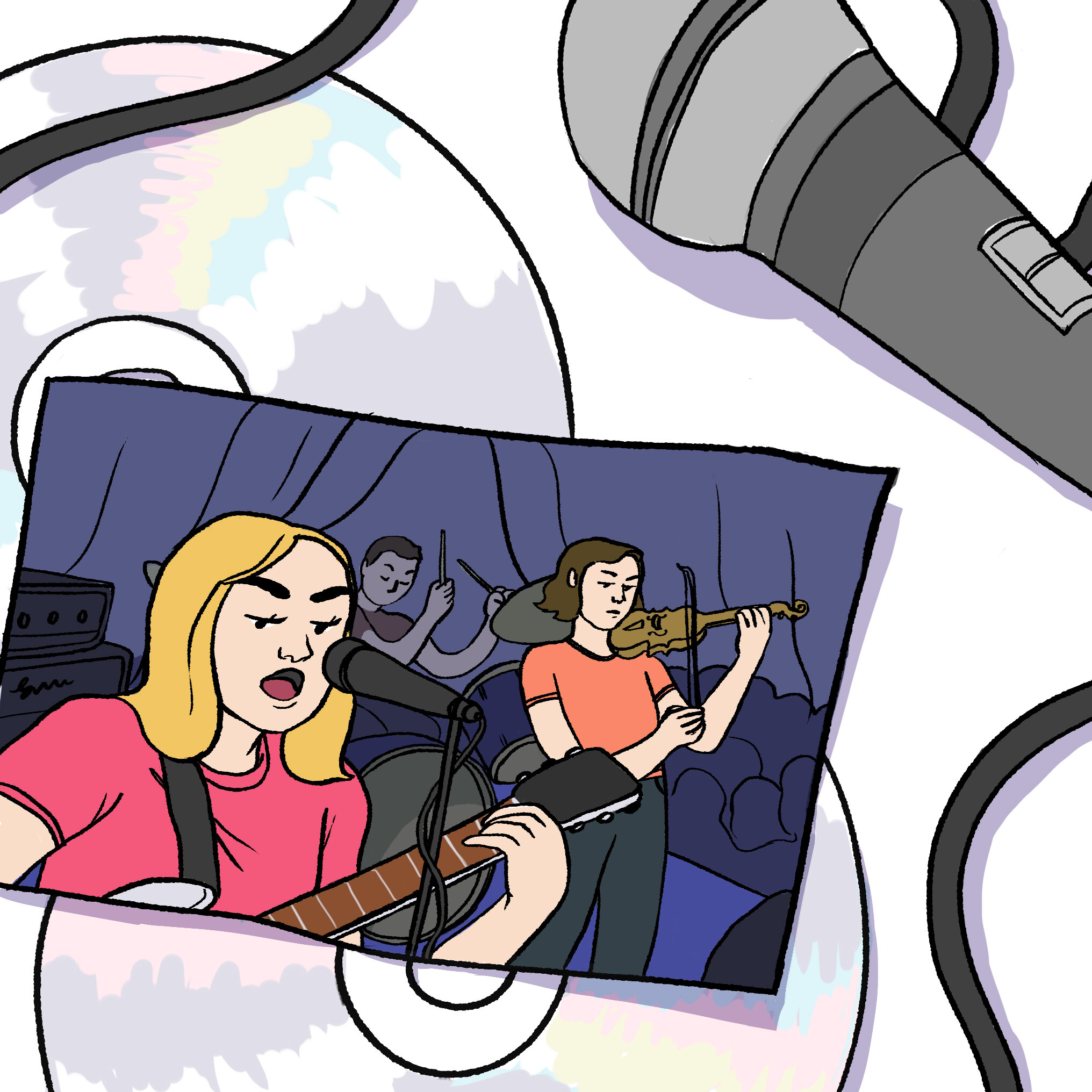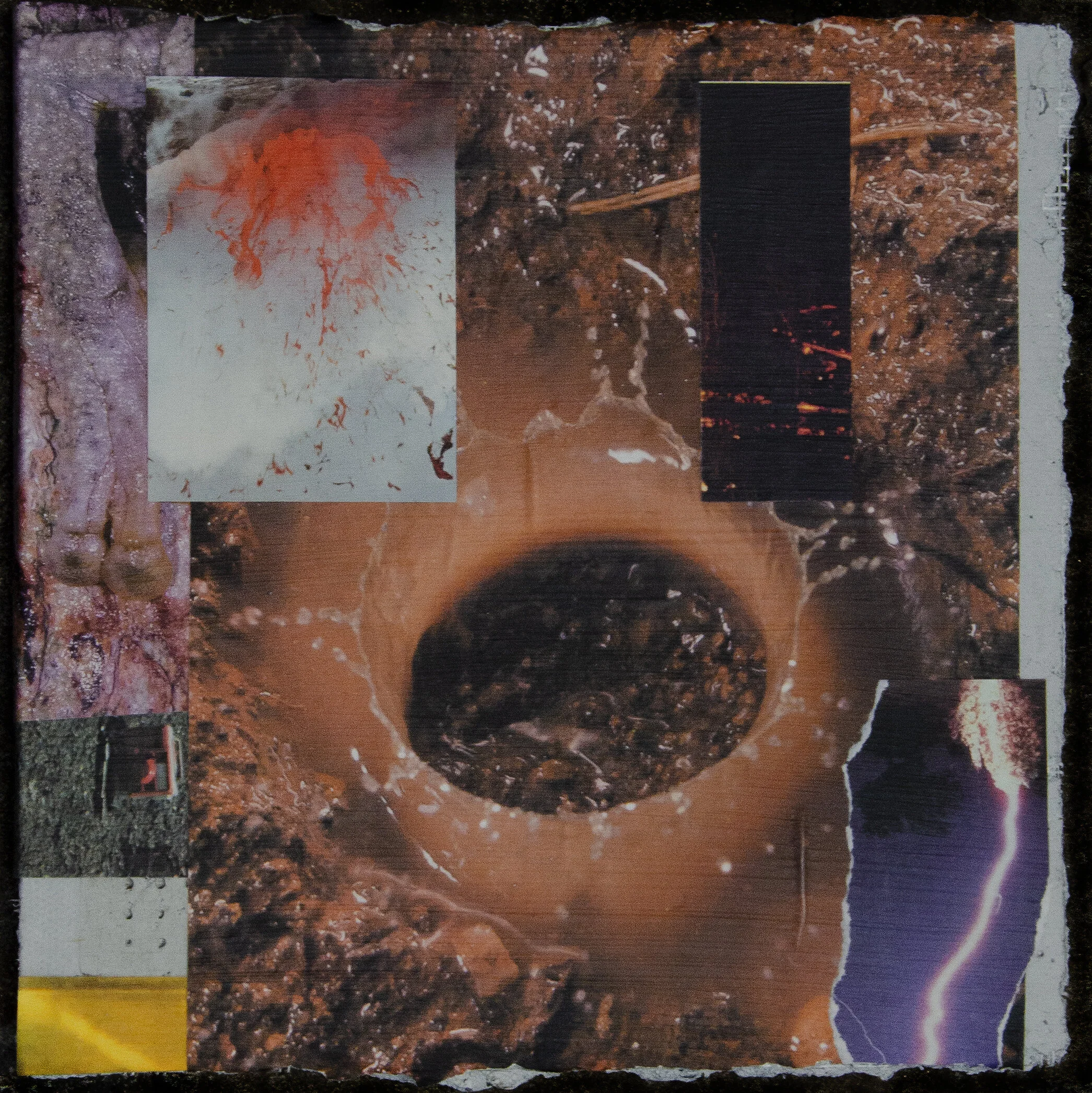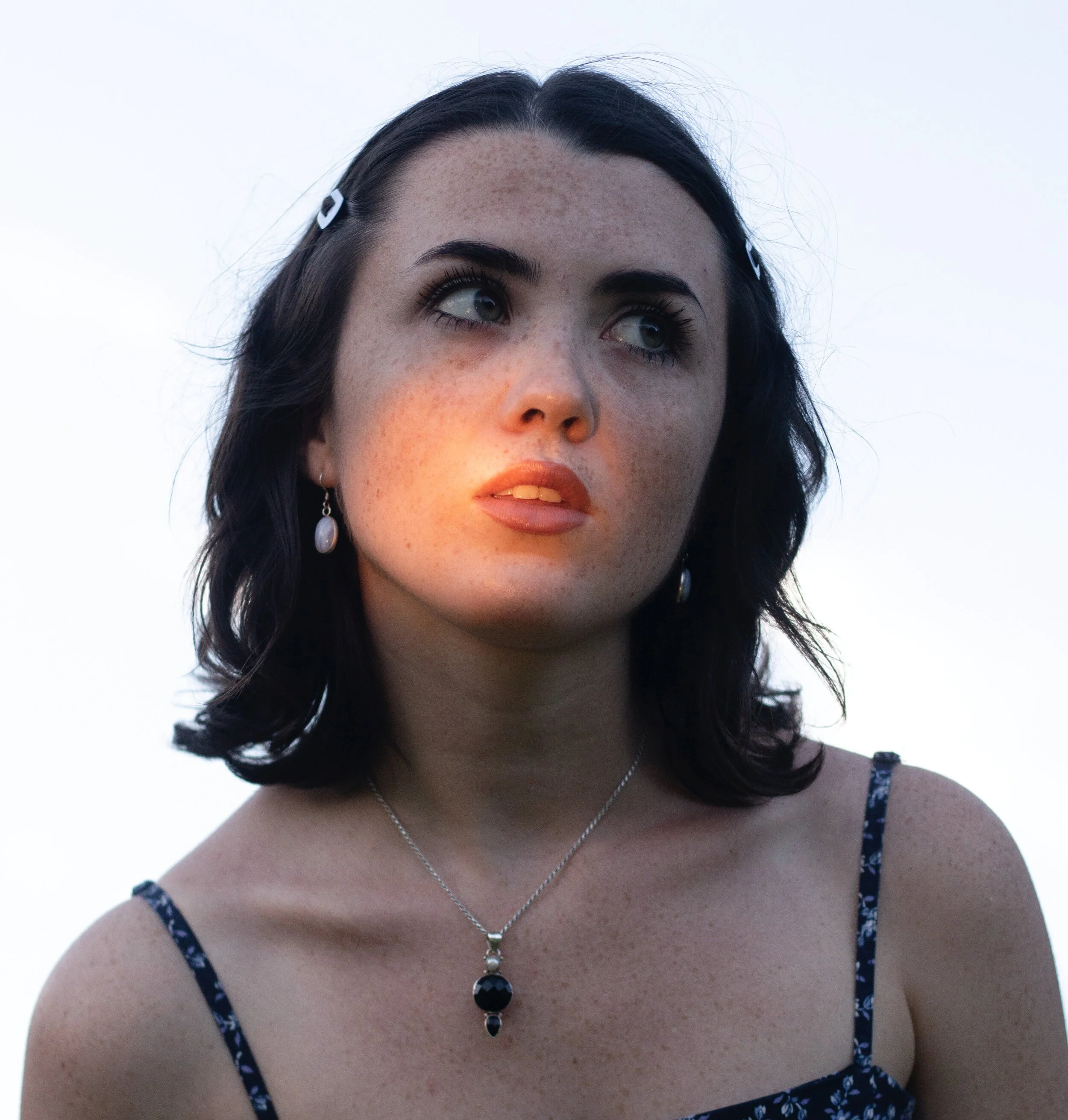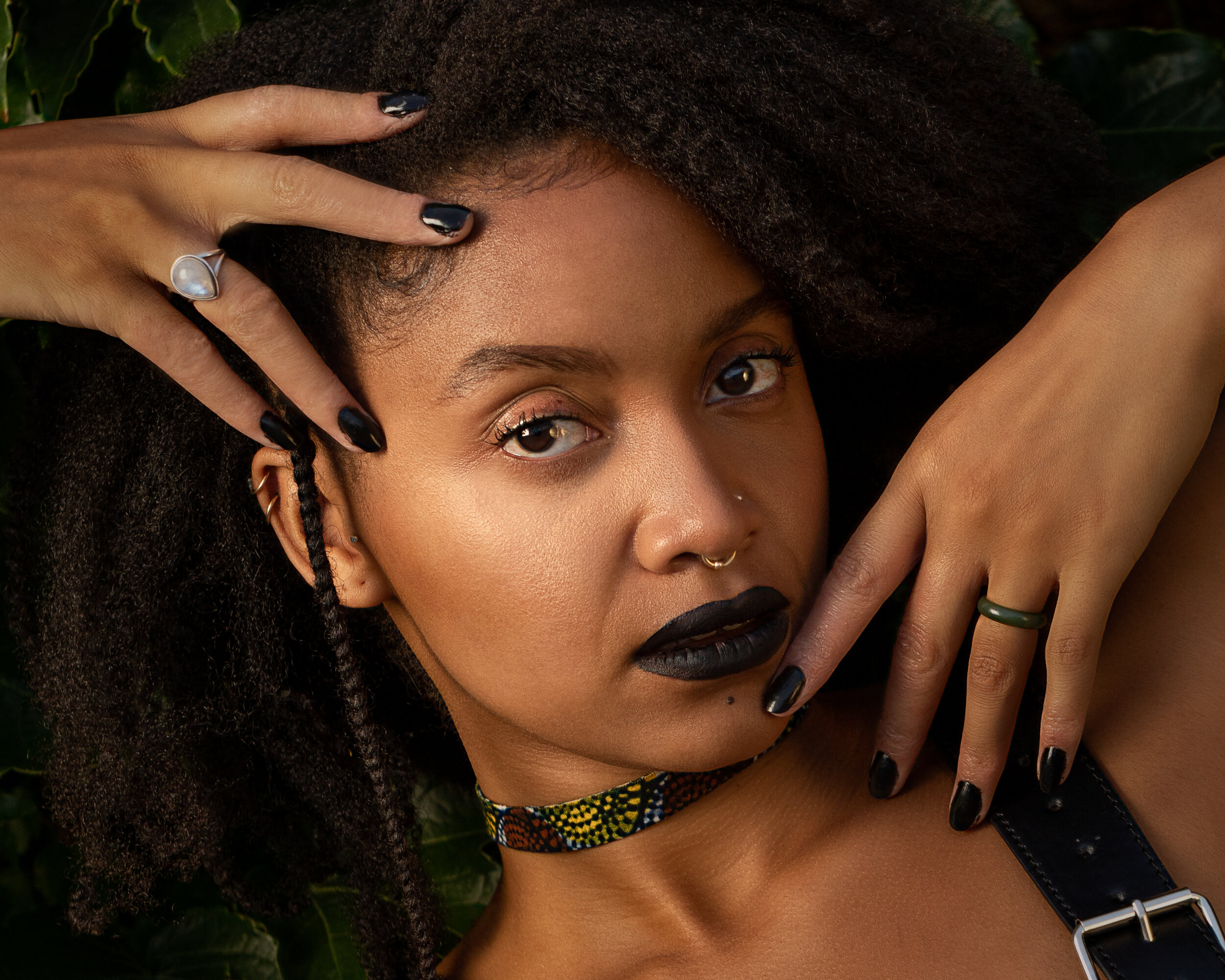Tal: It’s so late capitalism to suffer from lack of collective care and then put that blame all on yourself, right? Isn’t that the capitalist condition?
Swaya: Exactly!
Tal: Do you think differently about your solo releases than you do the collaborative work you’ve put out?
Swaya: It all feels part of the same thread. The 23 EP for me was different because it was a lot of dance music, as opposed to the more weird, experimental hybrid shit I was doing before. I really made that whole album alone in my basement in Boston. Being alone made me think of nightclub spaces because I was reflecting on my time in Montreal. I spent so much time there, and it was so formative for me. Then, because I was back at my parents’ house, which was such a drastic shift, I think I felt a profound absence on a lot of levels.
In terms of my life and friends, but also in terms of the identity and sense of self that I’d developed and grown into over time. I find that my sense of self is very bound up in my relationships with other people, so moving actually made it really hard to feel that self. That’s not so much what I was thinking about when I made 23, but that’s what I was going through while I was making it.
Tal: So how has your relationship to creativity and making music changed during coronavirus and the social uprising we’re seeing around the US?
Swaya: I will say for me, honestly, the pandemic has been an important time to evaluate my ego, to evaluate what I think I deserve, and what I actually contribute. Then, when the George Floyd protests started, for me, making music was not a priority at all. I’m still navigating what it means to bring my abolitionist ideas and politics into my work as a musician, but my immediate idea was that that space was less important than what’s going on in the street. That’s where my attention went, that’s why I got into doing the mutual aid work.
Tal: Right, so where are you at with bringing your politics into your artistry? Or how are you thinking about that question?
Swaya: I’m thinking about it more on the community scene level. There are huge problems with the industry, which isn’t sustainable or profitable for anyone. The people who are able to work the way I do often get their start because they have class privilege, access to resources, that sort of stuff. I mean, there are lots of questions I have for myself about what it means to be working with rappers, what it means to be a white person in this space. And I think part of why I talk about abolition is that I’m not really looking for band-aid or charitable solutions, I’m looking for real shifts, you know?
Tal: As someone who’s working as an engineer in these industry spaces and has experience as an artist too, what are some things you’ve learned or experienced about the music industry that you think people outside maybe don’t know about or don’t think about?
Swaya: Well, the industry is so unprofessional. I just didn’t know that you can be the biggest producer, the biggest engineer, whatever, and you still might not get paid. You know what I mean? It could be a project with a huge artist. There’s no protection built in. I think what we’re learning -- and why I appreciate bandcamp, the electronic scene, and the people around me -- is that a lot of the positions we have in the industry exist to put money that comes from your music into other people’s pockets.
Because I’m just an engineer and I mostly function in underground scenes, I’ve only seen the tip of the iceberg. But, in my experience working with other people and seeing other people I know work with labels and booking agents and that sort of stuff, honestly, DIY and community-based work can often be more transparent and actually help you make more money.
Back when I was still DJing, there were big events with big headliners that I did where I got paid less than I did DJing like an underground rave. It was pretty surprising to be paid less to perform at big events run by organizations with resources, opening for big headliners, than I was for playing my friends’ rave at an underground space like Cyberia. I think people don't realize that big corporations and nonprofits pay so little like that.
Tal: Something we’ve talked about in the past that I wanted to ask about here is social media use and social media brand for an artist. As someone who’s not aggressively marketing yourself through social media, have you felt like that’s affected your experience in the studio or other professional spaces outside of Montreal?
Swaya: Yea definitely. I find it frustrating that whenever I show any hesitance or disdain for using social media to brand myself, people take that as me not wanting to be a serious artist.
Tal: Can you expand on that? Why do you make that choice for yourself, and how have people perceived it?
Swaya: With all the changes I’ve gone through, I haven’t felt the energy or desire to promote myself in that way. That may change, but in the context of the studio, my resounding feeling has been that people take it like being lowkey on social media or not aggressively promoting yourself means that you’re not serious about music, which is really frustrating. I’ve sometimes felt like I was less respected than other people in the room because I wasn’t doing quite the same thing. I don’t have anything against social media, I really think that it’s a great tool. I just wish sometimes that people would do more to interpret what’s actually going on in the room in the moment. My issue is really with the disrespect.
When artists who I haven’t met yet hit me up, the way I originally meet them is through their social media, but what I’ve learned is that that doesn’t correlate to them as an artist, or how they treat you. It can be interesting: someone who seems like a random person who isn’t doing too much can be a super talented artist. Also, what goes on in the studio can be really removed from what goes on in social media; there are all kinds of moments and things that happen in the process of making the music that no one is ever going to see. All these people who are involved that no one else is gonna know were involved. There are all kinds of people who have worked with big artists, or are integral to the music scene that stay out of sight.
Tal: Like engineers and songwriters?
Swaya: Yea, but also homies. I feel like people can come up by being in the spaces and knowing people, or they can come up on social media. And there are differences.
Tal: Talking about all the people behind the scenes who go uncredited, the illusions of how an artist comes up alone, and hearing about all the people who are actually involved in that, it does seem to reinforce this idea that music-making is inevitably social and communal, even if that can be masked.
Swaya: Hell yea. Definitely, I agree. And there are lots of people who come up with each other and credit each other, and there are also lots of people who are intimately involved in the process who don’t necessarily want to be in the limelight. These things can exist at once.
Tal: What are some ideas or conversations you’ve been a part of that give you hope or optimism for life in the music industry?
Swaya: I’m still searching for answers on a lot of fronts. But, for example, we were in the studio the other day talking about different label deals; there was an artist in there who had some interest from people trying to sign her, and Tony [Seltzer] and I were talking about how when you have new artists who are starting to build a name for themselves, it’s so important to give them guidance, to give them a sense of what their options are. Because the industry won’t give them that. The ability to provide guidance and knowledge and resources is really important and useful.
On the other side of things, one thing that makes me feel hope is Bandcamp. It’s not anything radical at this point, but it’s nice seeing people I know deciding they don’t need a label, and they can put their shit out themselves and get some money directly. When I think about the radical possibilities of music, I think about music no longer being a commodity, but that gets a little heady and hard to think about at this time. When music isn’t a commodity, I mean, I don’t know if that’s possible. Those of us who are white or non-Black, isn’t our relationship to dance music or hip hop always commodifying? You know, I don’t know.
But ultimately the strength that I’ve been finding is in community, always. Coming back to that, trying to build that here in a new space with new people.
Tal: Are there any artists or other people in your life who you want to shout out or give thanks to while we’re here talking about community, and we have this platform?
Swaya: I’m shocked I haven’t mentioned this already, but earlier in the pandemic, me and a couple friends reached out to each other - it happened kind of simultaneously - and we decided to form a little group. We had all been thinking of forming a collective, not a front-facing one, like a brand, but an inward facing one, sort of an internal support network of people who work in music. So we’ve been meeting sporadically, talking through insecurities, talking through industry, talking through all sorts of issues that we face. That’s been really grounding for me and much needed, so huge shout out to them: D-Grade, Remote Access, DJ Pacifier, Mvcoko.
I want more people to listen to Valeda’s music since it’s so good. I’ve been enjoying keeping in touch with homies like Tati Au Miel and LUNÁTICA, who make amazing music. In terms of rappers I would say Harocaz, who’s in Boston and has great songs. My friend GIB DJ, he’s an amazing producer from Boston. We started having zoom hangouts and playing beats with each other, and we’d call out and invite other people to come. There were some great people involved in that, like my friend Magella who’s a great musician from Montreal and my friend Lucas, whose artist name is Jamesboy.
Also huge shout out to John Scott at Phoenix Down for giving me a chance to intern at your studio and learn essentially everything I now know about audio engineering. Shout out to the other Phoenix homies as well. Shout out to Tony Seltzer, for being really helpful and supportive and cool welcoming me into his space. Finally, shoutout to my friends and roommates who’ve supported me, Cecilia, Michelle, Marie, you.


































